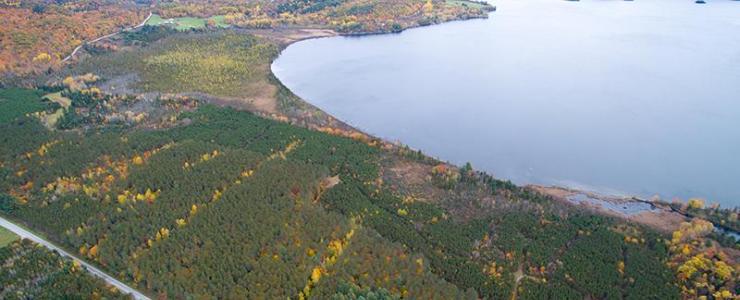Buying property in Quebec: costs and fees involved for the future owner
If you buy a property in Quebec but are not resident in Canada, the transaction is subject to some special conditions, of which you should be aware. You will be subject to certain fees and responsibilities before the notarial act, while you own the property and if you decide to sell it again.
Anyone not resident in Quebec is therefore recommend to take advice from a notary and accountant in the province before buying a property on Canadian soil.
1. Before the transaction
The first step is the signature of a bilateral offer to buy/sell with the property’s current owner. This is a pre-contract that sets out the key conditions of your agreement (price, guarantee, timeframe, special terms, etc.) and obliges both parties to complete the planned sale.
Make sure you negotiate a favorable exchange rate...
In addition to the agreed price, you should allow for certain fees. First, you should negotiate a favorable exchange rate with your bank because the transaction will take place in Canadian dollars. The funds will be transferred to the notary’s trust account electronically via an interbank network (SWIFT, CHIPS, FEDWIRE)1 .
You should also allow several thousand dollars for the acting notary’s fees and expenses.
Finally, if the buyer is a stock company (legal person), they will be required to register 2 with the Registrar of Companies beforehand.
2. Fees payable as the owner
A few weeks after the purchase, the municipality in which your property is located will send you a statement indicating the amount of transfer tax3 due. For calculation purposes, the amount used is the highest of:
I. The value recorded in the municipal assessment roll
II. The price paid
III. The counterpart amount stipulated for the transfer
Transfer tax is only payable once, at the time of acquisition.

The tax due is calculated on the basis of the highest amount of the three tax base amounts and according to the following scale:
0.5% on the first $50,000
1.0% on amounts from $50,001 to $250,000
Province of Quebec, outside Montreal:
1.5% on amounts exceeding $250,001
Based on this formula:
- For a purchase costing $1,000,000.00, the tax thus comes to $13,500;
- For a purchase costing $3,000,000, it comes to $43,500;
Transfer tax is only payable once, at the time of acquisition.
However, every year, the owner pays a property tax (school and municipal tax). The amount is directly proportional to the property’s value as recorded on the municipal assessment roll.
3. Tax matters
Other aspects need to be taken into consideration and should be studied in detail according to your personal situation. A Quebec-based accountant can advise you on these matters:
- Is the property taxable? Sales tax in Québec is 9.975% and tax on products and services is 5%; these are added to the sales price of certain properties4 .
- If the property is operated by a company, a federal and provincial declaration of income may be required every year5.
- When reselling a property in Canada, a tax is due on the capital gain realized (the rise in the property’s value)6.
To round off our brief summary, we ought to remind you that the effects of buying a property in Quebec are significantly different than in France. The information given here is very general and we recommend that non-residents consult a notary or tax specialist for full peace-of-mind before entering into a transaction.
Notes and bibliography
- RACINE, Chantal, “Capsules immobilièresâ€, in Entracte, vol. 17, no 9, 15 November 2008, p.12.
- For the (natural and legal) persons concerned by this registration requirement in Quebec, see : http://www.registreentreprises.gouv.qc.ca/en/demarrer/immatriculer/default.aspx
- See article 2 of the Act respecting duties on transfers of immovables (RLRQ, c. D-15.1)
- LACHAPELLE, Josée, “L’impact des dispositions particulières de la TPS/TVH et de la TVQ sur la pratique notarialeâ€, Répertoire de droit/Nouvelle Série, 3rd éd., Wilson and Lafleur, Montreal, 2013, par. 250. The sale of a land is taxable whenever it is realized by a person who is not a private individual (or a personal trust) or within the context of a company, or where it is a capital asset of the seller mainly used within the context of their company. The buyer should consult a Quebec-based accountant to find out whether or not they should register for the GST and QST before the transaction in order to qualify for an input tax credit (ITC).
- SAMOISETTE, Luce, “La fiscalitéâ€, Répertoire de droit/Nouvelle Série, 2nd ed., Wilson and Lafleur, Montreal, 2008, par. 29-31. Also see the fiscal treaty between Canada and France for the avoidance of double taxation and the prevention of fiscal evasion with respect to taxes on income and on capital : https://www.fin.gc.ca/treaties-conventions/france_-eng.asp
- Ditto, par. 80-81.















